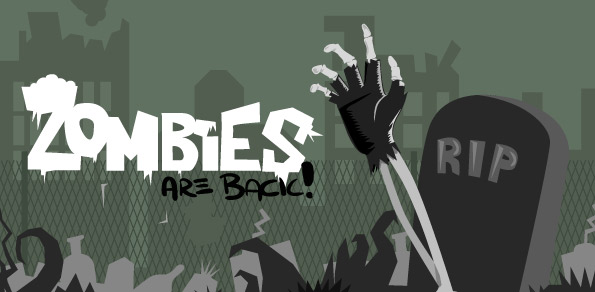When the largest hedge fund operators speak its essential that we pay attention, there are two in particular that investors and speculators should bookmark and/or sign up to Google alerts for to ensure you’re constantly on message with their pronouncements. They are PIMCO and Bridgewater. Both have recently issued very dire predictions on the future of the global economy with particular focus and emphasis on the debt crisis in Europe. Bob Prince of Bridgewater has issued as dark a statement as can be currently found within the investment community.
His prediction, that the systemic crisis could take 20 years plus to work through the system, deserves serious consideration and a far wider audience. In describing the USA and European economies as zombies, with mountains of debt to climb through in order to restore credibility and sound fundamentals, Mr. Prince is echoing his thoughts back in October 2011 when he pronounced that elite bankers and politcians had no tools left in the toolbox to ‘fix’ the problem.
Indirectly he’s also on the page with leading Eurozone politicians, such as Chancellor Merkel, who like Bob Prince suggests that there are no magic silver bullets with which to heal the crisis with. Instead citizens, countries and corporations need to take a long term view of the intense uphill slog required to restore some equilibrium to the market, domestic or international markets.
His statement could turn out to be the most prophetic throughout 2012;
[quote]what you have is a picture of broken economic systems that are operating on life support; we’re in a secular deleveraging that will probably take 15 to 20 years to work through and we’re just four years in.[/quote]
Hedge Funds In 2011
However, similar to Paulson & Co, who made disastrous predictions in 2011, the hedge fund community can get it spectacularly wrong. In 2011, hedge funds on average lost 5%, according to an estimate by Hedge Fund Research Inc., lagging behind the Standard & Poor’s 500-stock index, which gained 2.1% on a total-return basis. The net result was that hedge-fund performance, for the third straight year, lagged behind stock-market returns.
The industry has been quick to apportion blame and finger the main culprit behind the disappointing numbers, the wild market swings, especially in stocks. The economic crisis in Europe fueled the uncertainty, and was often amplified by domestic events, such as S&P’s downgrade of the U.S.’s triple-A credit rating.
Here’s a useful link to the last update for leading hedge fund performance in 2011
http://docs.docstoc.com/pdf/518434/a5254769-4a81-4f8a-a96d-8ddeee36643a.pdf
PIMCO
Pacific Investment Management Co., whose largest fund suffered its worst year on record after CEO’s Bill Gross’s failed bet against Treasuries, said the U.S. may stagnate next year, a view at odds with recent data signalling continued growth. Gross is co-chief investment officer at Pimco. The firm, owned by Munich-based insurer Allianz SE, manages about $1.3 trillion in assets.
Gross’s Total Return Fund, the world’s biggest mutual fund, is on track for its first calendar year of redemptions after it trailed 72 percent of rivals in 2011, according to data compiled by research firm Lipper and Bloomberg. Investors pulled $2.3 billion from the $241 billion fund in the first 11 months of 2011. Total Return beat 98 percent of peers over the past five years. Gross, in an October letter to clients titled “Mea Culpa,” called 2011 a “stinker” of a year after he shunned Treasuries in the first half and missed a rally as investors rushed to the safety of government-backed debt amid the European sovereign-debt crisis. After eliminating Treasuries from the portfolio in February, Gross has piled back into the securities, bringing government and Treasury debt to 23 percent as of Nov. 30.
European sovereign debt has just about the same status that was bestowed on subprime mortgage bonds during the depths of the financial crisis, according to Pacific Investment Management Co.’s Anthony Crescenzi.
The executive vice president at Pimco, said recently during an interview on Bloomberg Radio’s “On the Economy”;
[quote]It’s almost like 2008, when in the United States banks and investors didn’t want to be seen as having holdings, or known to have holdings, in subprime mortgages and other so- called toxic assets.[/quote]
The company, based in Newport Beach, California, operates the world’s biggest bond fund.
Bridgewater Associates
Bridgewater Associates has made stellar returns for investors over recent years by staying bearish on much of the global economy. As the new year commences the hedge fund firm has no plans to change that gloomy view.
Robert Prince, co-chief investment officer at Bridgewater, and his managers at the world’s biggest hedge fund firm are preparing for at least a decade of slow growth and high unemployment for the big developed economies. Mr. Prince describes those economies, U.S. and Europe, in particular, as “zombies” and says they will remain that way until they work through their mountains of debt.
[quote]The fund is positioned for higher gold prices, stronger Asian emerging-market currencies and lower yields across high-quality government bond markets, what you have is a picture of broken economic systems that are operating on life support; we’re in a secular deleveraging that will probably take 15 to 20 years to work through and we’re just four years in.[/quote]






Comments are closed.